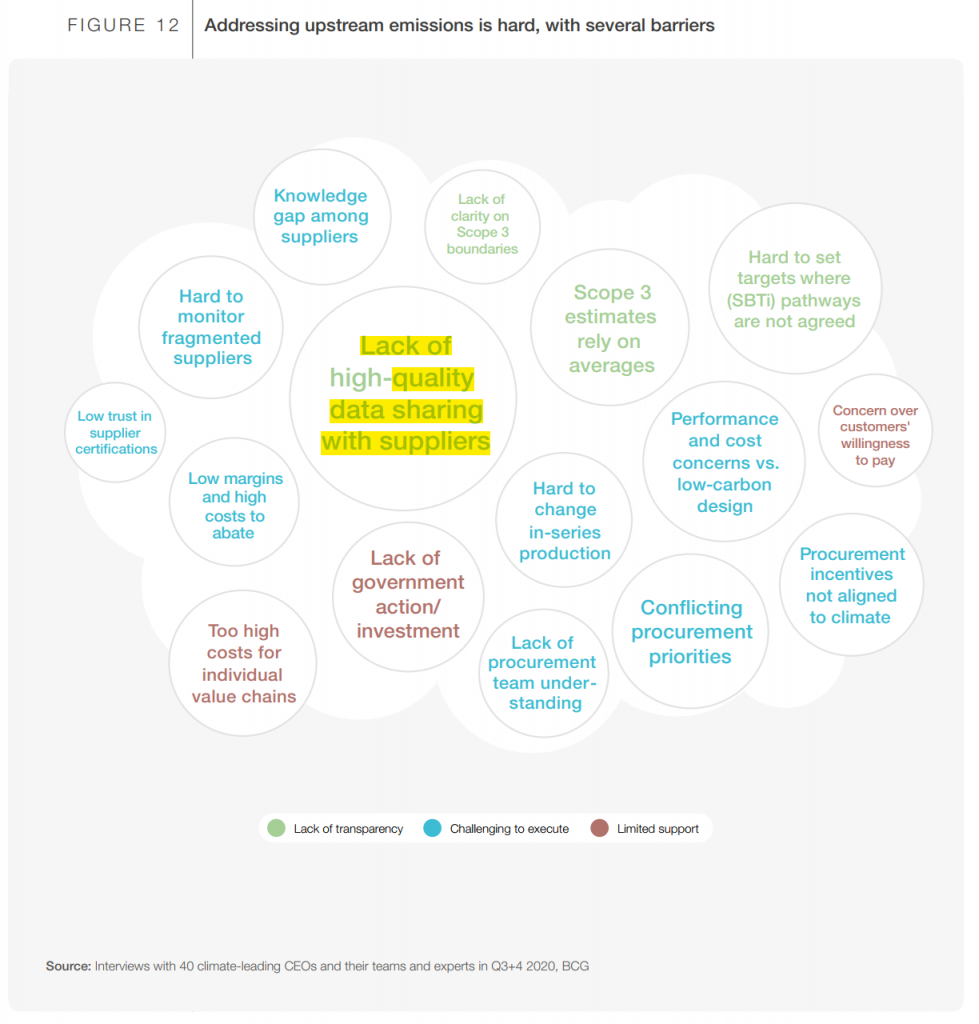Carbon foot-printing problem is, first of all, an information problem.
In a recent report released by World Economic Forum, the first challenge in reducing carbon emission is informational: There is just not enough transparency and clarity on who is emitting how much across a supply chain.

Because of those informational barriers, companies will benefit from tools that can help them tracking and reducing their carbon footprint.
As an example, recently I came across Watershed, a company that does exactly that.
Watershed is essentially an information tracking and sharing tool. As I mentioned in an earlier article, counting carbon across a supply chain is not trivial. But the methodology is established (i.e., the Greenhouse Gas Protocol is the golden standard). It is just the many many sources of carbon that need to be discovered, tallied, and tracked. For those, some kind of automation tool, such as the one provided by Watershed, will be extremely helpful.
Another dimension of this information problem is also awareness and education. Many companies simply do not know that they have a carbon problem in their supply chains! So communication and education is vital.
Again, Watershed is doing a good job publicizing their results and educating companies on their blogs. For example, it educates companies that basic equation is counting carbon is:

It also provides a nice graph summarizing the scope of tracking each business activity with a company’s supply chain:

It is truly exciting to see the list of companies that have signed up. We need more of those companies and more of those tools to fight global warming and save our planet.